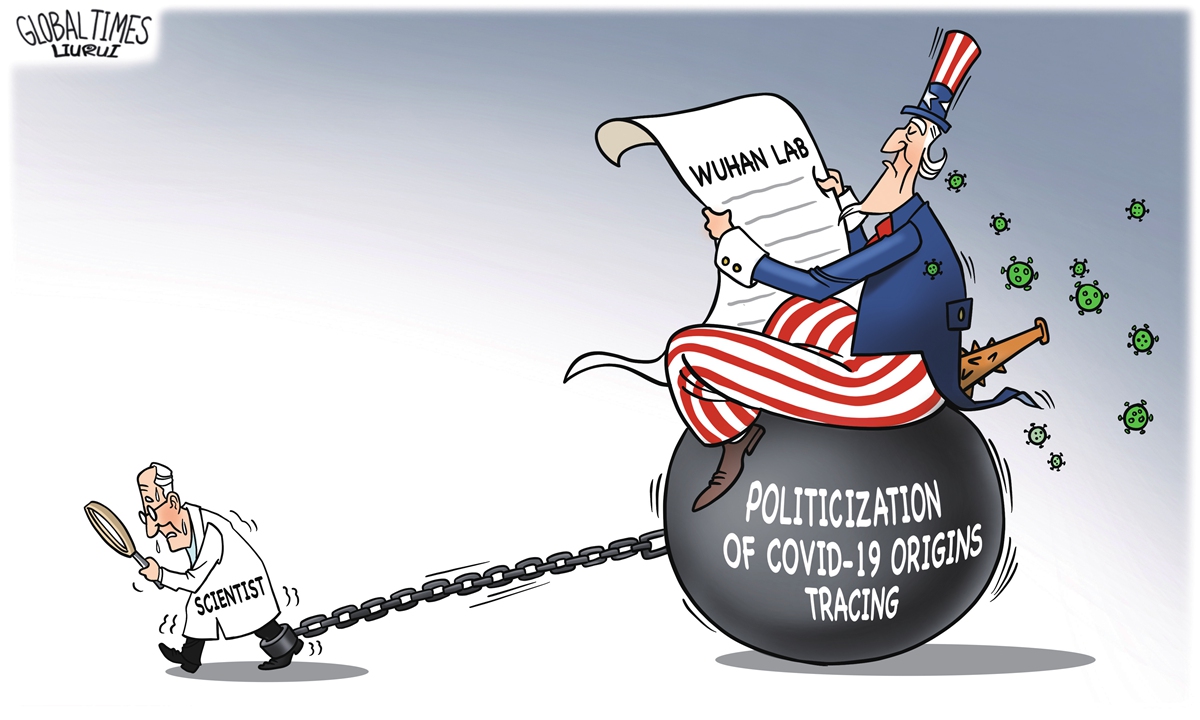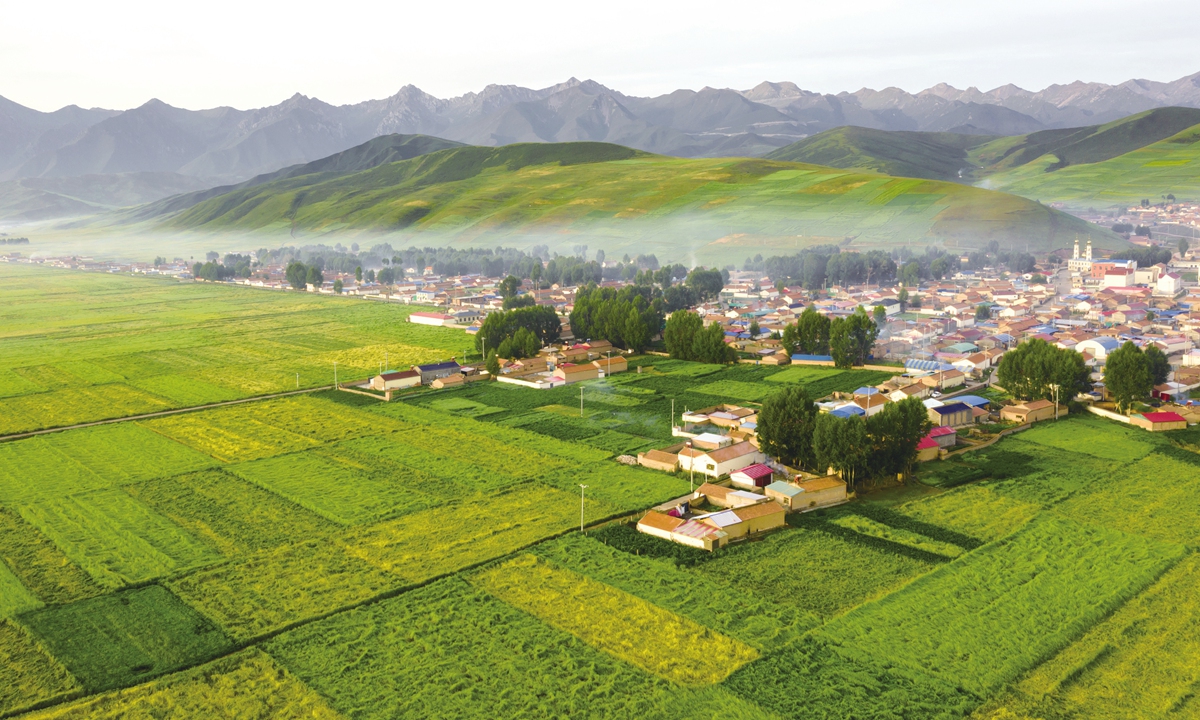 |
New decade, new Malaysian education: For the sake of our children and
our future, Mazlee’s replacement should be a qualified and capable
Malaysian – irrespective of race or religion.
|
We need a new Education Minister with the right qualifications, a scientific mindset and a technocratic iron will to implement the critical changes.
I HAVE been a big critic of and objector to Maszlee Malik as Education Minister from day one.
I took no pleasure in it then nor do I take pleasure in it now. It just is. The wrong person must go and the right person must come in.
Education is far too important for a nation to be entrusted to those not competent in moulding the minds of our most precious resource, our youth. Education is where we develop this resource for either the success or the failure of our nation.
We do not have to look far to see success. A country with no natural resources, with a tenth of our population, can be a developed nation by sheer power of its human resources.
In 1965, Malaysia and Singapore went separate ways in more ways than one. Look at where they are and look where we are now. The lessons to be learned are abundant. Have the humility to know when we are wrong and they have been right all along. There is no need to look East. Look South.
“A nation is great not by its size alone. It is the will, the cohesion, the stamina, the discipline of its people and the quality of its leaders which ensure it an honourable place in history, ” said its architect, Lee Kuan Yew in 1963.
The education ministership is the leader in ensuring that our children and our youths are able to take the nation to the next level. It is just not at the very top have we got it wrong, again and again. We must have the humility to admit when we are wrong and have been wrong for more than 30 years. We must have the decency, discipline and courage to want to change so our future can be assured.
What did Singapore do right in education? When one looks at massive differences in results, one need not look at many things. One need only look at the fundamental deviation at the root.
One: Singaporean education is in English.
Despite more than 76% of its population being ethnic Chinese, the medium of instruction for its public schools is English. Have you ever heard the Singaporean government or its leaders talk about “memartabatkan” (to give dignity to) the Mandarin language? They have no time for such foolish ethnic pride.
They may find ways to conserve Chinese heritage but they have no interest or inclination to play to racial sentiments that would sacrifice the very essence that will ensure their children have the easiest access to the widest and latest conservatory of human knowledge since the late 19th century.
As such, accessibility of critical knowledge for their children and subsequent generations are assured from young and is continuous throughout their lives. It is so easy to do for those who have the best interest at heart and yet so difficult to do for those with foolish pride and Machiavellian political ambitions.
No mandatory Chinese calligraphy is needed to ensure Chinese heritage continues. No shouting of slogans of Ketuanan Cina and its preservation. That is confidence in your own ability to shape destiny. To hell with all that. Learn in English.
Two: Their education is secular. Because that is the essence of education
One of the greatest physicists and teachers of the 20th century, the late Nobel Prize winner Richard Feynman, famously said, “I would rather have questions that can’t be answered than answers that can’t be questioned.”
That, ladies and gentlemen, is what makes an education.
Singapore does not impose belief on its citizens. And that starts in education. Question everything and everyone. Anything that cannot be questioned has no place in the classroom of public education. That is called indoctrination.
You want to indoctrinate your children that the sky is filled with butterflies and angels in the morning, go ahead, but not on our time or our dime.
It is abhorrent the amount of taxpayers money and children’s time that have been wasted on indoctrination of belief. Indoctrination stops you from thinking, it is the complete acceptance of belief.
As Einstein said, “Education is not the learning of facts, but the training of the mind to think”. Religion is not about thinking, its about accepting.
Religion – any religious indoctrination – has no place in public education. You do not find that in Singapore and you do not find that in any other developed nation. If you want to include religion in public education, do it as part of comparative religion in the social sciences context. Otherwise it is indoctrination. It is useless as education.
Belief, religion and its indoctrination must be the domain of parents, if they so choose, and not government. Otherwise the result is imposition, persecution and finally tyranny of belief upon the citizenry. And no nation will survive such tyranny.
There is a reason great men of history have warned us against such wanton imposition of religious beliefs and indoctrination of the masses. Thomas Jefferson once said, “In every country and every age, the priest had been hostile to liberty.”
We need to heed this warning.
Three: One word – Science.
I have said this again and again. Science is the salvation of a nation, especially today in the 21st century.
The triumph of human civilisation is the triumph of science. The ascendancy of humankind, each empire, each nation and people has been through their grasp of the “science” of their time and its application in their minds and lives.
Our education must be science-centric. No ifs or buts. There must be more basic science taught, learned, experimented with and exposed to our children from the day they start school until they leave it. In depth and breadth and in the number of hours spent on it. We must have truly competent and passionate teachers to carry out this duty.
Even as a lawyer, I have learned that the human mind and senses are limited. Nothing fools humans more than their minds and their own senses.
In just the last decade, more convictions of innocents due to so-called eye-witness testimonies, even multiple ones, have been overturned as a result of DNA evidence to the contrary. Why? Science has proven that human senses and minds can be easily fooled, especially by emotion and herd mentality. But science is objective, evidentiary knowledge.
We need to build a science-centric society and that starts with our primary and secondary education. From the beginning, Lee realised the importance of establishing Singapore as a leader in the field of science and technology in Asia. He did not care what your ethnicity or religion was, that was the priority. And look at the society he built. Modern in outlook and progressive in thought, to the point he could no longer really control the people.
Maybe that is what our leaders are afraid of. A questioning, educated, critical thinking masses.
We must halt this downward slide of epic proportions in Malaysian education.
A new education minister with the right qualifications, a scientific or science-centric mindset and a technocratic iron will to implement critical changes must be appointed. Nothing less can be acceptable to Malaysians. This must be our demand.
I believe the next appointment will be a critical test whether this Pakatan government is worthy of our consideration in the next elections or an alternative must be considered and pursued vigorously by the right-minded citizenry.
We need the new education minister to implement what is needed. Go back to the basics and have the will, courage and ingenuity to make tough changes against what I expect to be conservative political opposition, both racial and religious.
If the person is more interested in putting colleagues in religious brotherhoods ahead of qualified intellectual professionals in positions of authority in education, then we are all doomed.
If the person is more interested in telling and allowing teachers to carry on dakwah (Islamic preaching) instead of closing down separate canteens in schools, then our quagmire will continue.
Black shoes and hotel swimming pools. That is the legacy we have been left with.
We need to see the closing down of worthless tax-payer funded universities that carry the word science but are based on beliefs and scriptures. They make a mockery of our nation and society. They promote the dumbing down of our population and produce graduates that will have nothing to contribute but further destruction of the Malaysian civilisation. We need a shake down of epic proportions for Malaysian education to return it to its past glory and make future progress.
As such, unlike a certain racist and bigoted MP from PAS, who insists on a Malay Muslim candidate only for the post, we need a minister who is qualified, irrespective of race or religion. We just need a Malaysian who is capable, for the sake of our children and our future.
We need an education minister who understands what is essential education. It is not rocket science.
But like all things in Malaysian politics, I have stopped believing in the capabilities or integrity of most of our politicians and political leadership. How I hope that I am proven wrong.
I close with this quote from Carl Sagan, one of the foremost teachers of science: “We live in a society exquisitely dependent on science and technology, in which hardly anyone knows anything about science and technology.”
That could very well describe our Malaysian education system and administration.
But 2020 has arrived, so it’s time for real change to happen.
Activist lawyer Siti Kasim is the founder of the Malaysian Action for Justice and Unity Foundation (Maju). The views expressed here are solely her own.
Source link
Read more:
A glimpse of glory
We once had a vision of a future, but now that it’s here, we still seem stuck in the past.
 |
| Cutting edge: Schools in China have begun to emphasise the teaching of
coding, robotics and AI in the great push to produce the best engineers
and digital experts. — AFP |
WE are already into 2020 and it’s the dawn of a new decade. But if we buy into the endless narrative of race and religion, it’s as if we haven’t moved.
Six decades after Malaysia’s independence, and we are still trapped in this blinding obsession with ethnicity, which has done nothing but consume so much of our time and energy.
When rationale flies out the window, and reasoning fails, some politicians and self-declared communal champions resort to bigotry ways.
And of course, the most unscrupulous sometimes tell our citizens they should leave the country if they are unhappy, although incredulously, some of these characters conveniently overlook how their forefathers came to Malaya nearly the same time as the rest.
If Malaysia is caught in the middle income trap now, with our inability to reach a higher level of income, that’s down to not having changed in how we’ve functioned economically for the past 40-odd years.
The middle-income trap concept refers to the transition of low income to a middle income economy.
We have failed to achieve the Vision 2020 objective of becoming a developed nation, and the architect of that plan, Tun Dr Mahathir Mohamad, has blamed his successors for the failure.
Now, the Pakatan Harapan government – also led by Dr Mahathir – has unveiled the Shared Prosperity Plan for 2035. It remains to be seen if we will reach that goal, either.
But at the rate we are moving, it’s hard to ignore how the voice of hope has somehow hushed.
In fact, Vision 2020 set off bigger expectations and optimism, but now there seems to be a lack of purpose and leadership.
If Malaysia is facing a middle income trap, then we are also snagged in a political status snare because we are heading nowhere as a nation, as we recklessly hand racial and religious hardliners the wheel of the nation.
Unelected religious activists seem to be speaking more boldly than many elected representatives, who seem content to let these fringe personalities hog the headlines.
In the digital age, the decibel level has been cranked in social media, and comments posted by their fans to support these hawks have become more seditious and disturbing.
It’s hard to break free from that gnawing sense that they are allowed to continue because the government fears putting a leash on them.
Our Pakatan Harapan leaders, especially those from Bersatu, seem to lack the will to take on a centrist role, and worse, have attempted to compete with those playing the race and religion cards.
While these political shenanigans may gain domestic mileage, it doesn’t help Malaysia one bit because many see it as part of the inability to get our act together.
They see the vibrance and innovations of Thailand, Vietnam and Indonesia, and want a slice of that pie. But anyone who has been to the cities of these three Asean countries will understand why they are selling their stories much better to investors.
Let’s be blunt – they are telling investors to forget Malaysia as they highlight our continuing basket case political mentality and actions, with its cyclical scripts in tow.
Who can take us seriously if we believe a group of retired communists in wheelchairs can threaten national security over a reunion, which looked more like their farewell dinner?
Even the communists in China and Vietnam – countries which have good diplomatic ties with Malaysia – have embraced capitalism unlike those in other established free markets. The only thing communist is their political structure, that’s all.
And we still hear some small-minded chauvinists calling for the closure of vernacular schools, claiming they are the root to disunity.
The cause of our fragmentation isn’t these schools (which have produced many great talents), but the resident bigots and extremists.
Framed against this backdrop, it has become even more pertinent for those in significant positions of influence to speak up against these tyrants.
In November, Singapore launched its National AI Strategy, with three objectives to ensure it becomes a global hub for developing, test-bedding, deploying and scaling AI solutions, as well as learning how to govern and manage the impact of AI.
Schools in China have begun to emphasise the teaching of coding, robotics and AI in the great push to produce the best engineers and digital experts.
But our school system continues to be weighed down by politics, religion and language.
For just awhile, can we ask ourselves why we have been so preoccupied and emotional over so many superfluous issues that do nothing to propel Malaysia to become a developed nation?
It’s a small world after all, and in 2020, the world has become increasingly inclusive and is culturally more open and dynamic. But if we continue the way we are, we will remain in the lower tiers of national progress.
Source link
Read more:
Vision without execution is delusion
 |
| Few countries peer far into the future, but in 1991, Malaysia’s Prime
Minister Tun Dr Mahathir Mohamad(filepic) declared Vision or Wawasan
2020. ... Looking back, was it possible to achieve this breathtaking
vision? In my humble opinion, definitely. How much of it has Malaysia
achieved? The answer depends on who you talk to. |
The ideal eyesight is 20-20 vision when we can see everything clearly and know exactly where to go.
Given that 2018 and 2019 have been years of great populist upheaval, geopolitical tensions, massive climate change and technology transformations, it is not surprising that our first year of the third decade of the 21st century is masked by the fog of uncertainty.
Few countries peer far into the future, but in 1991, Malaysia’s Prime Minister Tun Dr Mahathir Mohamad declared Vision or Wawasan 2020, “the ultimate objective that we should aim for is a Malaysia that is, by the year 2020, a fully developed country in our own mould, according to the standards that we ourselves set”.
To set a five-year plan is common place; to lay out a vision 30 years to the future was breathtaking in audacity. Dr Mahathir himself laid out nine challenges to achieve by 2020: first, establishing a united Malaysian nation made up of one bangsa (race); second, creating a psychologically liberated, secure and developed Malaysian society; third, fostering and developing a mature democratic society; fourth, establishing a fully moral and ethical society; fifth, establishing a matured liberal and tolerant society; sixth, establishing a scientific and progressive society; seventh, establishing a fully caring society; eighth, ensuring an economically just society, in which there is a fair and equitable distribution of the wealth of the nation; and ninth, establishing a prosperous society with an economy that is fully competitive, dynamic, robust and resilient.
Looking back, was it possible to achieve this breathtaking vision? In my humble opinion, definitely. How much of it has Malaysia achieved? The answer depends on who you talk to. On the issue of advanced country status, Malaysia is one class below in the upper middle income bracket with a gross national income (GNI) range of US$3,996 to US$12,375 per year. High-income economies are defined by the World Bank as those with a GNI per capita of US$12,376 or more. The IMF estimates Malaysia’s 2019 GNI per capita at US$11,140, pretty near the top end of the upper middle-income range, so it is certainly within striking distance. Indeed, if the exchange rate goes back to roughly RM3.80 to US$1, Malaysia would attain high income status. On the issue of national competitiveness, Malaysia ranks 27th out of 141 nations surveyed by the WEF Global Competitiveness Index (2019). This is no mean achievement, as her financial markets are ranked 15th.
But with Malaysia’s Gini Coefficient about the same as the United States (41st), social equality is nothing to be proud of, but at least advanced countries have not also achieved fairness in income and wealth that they vaunt.
Malaysia is a country blessed with large natural resources relative to the population, located in the high growth zone of East Asia and an important contributor to the global supply chain. She faces the same difficulties and challenges of most emerging markets in how to position oneself in a global situation that is fraught with new and somewhat daunting problems of geopolitical tension, climate change and massive technology transformation.
As the example of high income, sophisticated Hong Kong economy has shown, no one can take economic freedoms and competitiveness for granted, because politics can change the game almost overnight. What most governments struggle with is how to prepare the population, both the working class and the young, to adapt to the emerging technologies through education and re-skilling.
So it is not surprising in this age of digital divide that the most contentious area of politics is often in education.
Actually, there is not so much a digital divide as a knowledge divide – we are divided by our ignorances of each other and our inability to appreciate that what is about to kill or marginalise us is global climate change, conflicts and disruptive technology.
But what separates us from working together is ideology, religion and ultimately identity, turbo-charged by fake news that says the other side is always the bad guy.
In other words, polarisation can be reduced from working together to deal with external threats, but internally recognizing that there are common, shared interests and objectives.
Personally, climate change is the existential threat, whilst there is little that small countries can do about Great Power politics.
But technology is what each country can adopt to deal with climate change and keeping up with competition. Small countries like Singapore, Sweden and Switzerland carry much more clout than their size because of their willingness to invest in technology. The real threat of artificial intelligence and Big Data is that only the few that have scale and willingness to invest in knowledge will be the big winners.
This explains why the US and China have the leading tech platforms, because they not only have scale, speed and scope, but also the focus to work on the AI breakthroughs.
But recognising the threats and opportunities is only half of the Vision thing.
Vision without execution is delusion.
Getting the execution right is then all about politics and the bureaucracy.
Boris Johnson’s election victory on Brexit showed that he had the correct vision that the British were tired of European bureaucracy that stifled their freedom of action.
But whether he can change the British business model means that he has to radically transform a British civil service that has followed EU laws and mindset. This is exactly what Carrie Lam has to do with the Hong Kong civil service that is operating behind the times.
MIT economist Cesar Hidalgo quotes the essence of the modern problem by citing top football coach Josef Guardiola as saying that “the main challenge of coaching a team is not figuring out a game plan but getting that game plan into the heads of the players.”
Any plan or vision must be internalised by the players, because only they can execute the plan in the game that is ever changing and uncertain. In short, no vision in 2020 can work until the political leadership understands that only by internalizing the diversity of the team can the team be a winner or at least not a loser.
Happy 2020.
The views expressed are the writer’s own.
Source link
Related posts:
The pump-prime our financial situation, we need a massive investment to revamp and rebuild our education
https://youtu.be/FVnBpckzi..

AS 2019 comes to a close let us reflect on
how we have progressed as a nation in the past year. It’s time to take
stock of our achievements
Jawi, a simple education matter is threatening to morph into a serious political issue?
The Meritocracy Paradox Pakatan Harapan’s
unexpected win in the recent 14th General Elections sent a signal that
it is time for the cou...











 The FM really got SHOCKED when LGE asked him whether the budget was approved by the cabinet. Watch the video.
The FM really got SHOCKED when LGE asked him whether the budget was approved by the cabinet. Watch the video.










